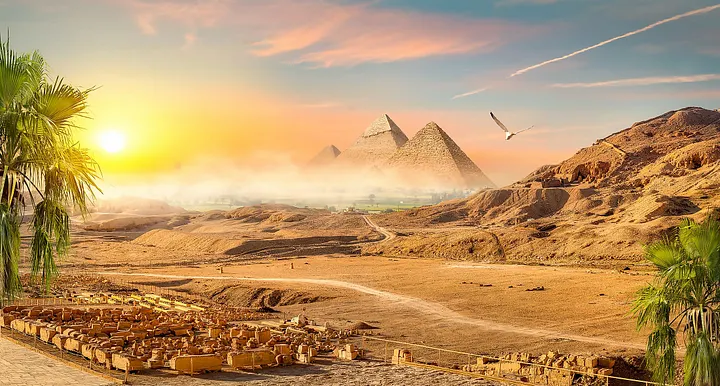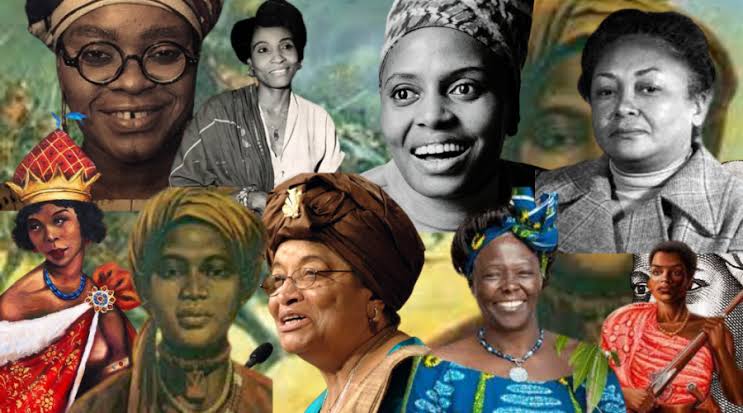How Ancient African Kingdoms Shaped a Continent's Enduring Legacy

The history of Africa is often told starting with colonialism, overshadowing millennia of rich, complex, and powerful civilizations.
This narrow perspective misrepresents the continent’s deep heritage and enduring influence. This article will challenge that narrative by delving into the magnificent pre-colonial African kingdoms and empires.
The legacy of these ancient powers continues to resonate in modern Africa, influencing everything from contemporary political thought and economic resilience to cultural identity and the drive for self-determination.
The Political and Administrative Prowess of Ancient Empires
Pre-colonial African empires were characterized by sophisticated and often decentralized political systems that fostered stability and long-term prosperity. The Mali Empire (c. 1230–1645) is a prime example.
SOURCE: Google
Its legendary ruler, Sundiata Keita, established a charter known as the Kouroukan Fouga, which served as a constitution. This document outlined social and economic reforms, protected the rights of various clans, and established a system of checks and balances through a Great Assembly, or Gbara.
This assembly, composed of delegates from different clans, functioned as a ruler's cabinet, with different dignitaries overseeing war, justice, and the economy.
The empire's administrative structure was highly organized, with provincial governors reporting to a central authority, allowing for effective governance over vast territories.
Similarly, Great Zimbabwe (c. 11th–15th centuries) was governed by a centralized monarchy that administered a sophisticated trade network from its capital. The kingdom's influence extended over a large region of Southern Africa, and its political stability was crucial for its economic success.
In Central Africa, the Kingdom of Kongo (c. 1390–1914) was a highly organized state with a king (manikongo) at the top, supported by a provincial administration that oversaw tax collection and justice.
These systems were not despotic; they often involved a degree of popular participation and consensus-building, with local chiefs and councils playing a vital role in day-to-day governance, a principle that continues to inform traditional authority structures in many parts of Africa today.
Global Trade Networks and Economic Might
Long before European colonization, African kingdoms were central to global trade, connecting the continent to distant economies in the Middle East, Asia, and Europe. The trans-Saharan trade routes were a critical artery for West African empires like Mali and Songhai.
SOURCE: Google
These kingdoms grew wealthy from the trade of gold, salt, ivory, and other goods. Mansa Musa, the ruler of the Mali Empire, famously demonstrated this wealth during his pilgrimage to Mecca in 1324, an event that became legendary for the sheer amount of gold he brought with him, so much that it caused inflation in Cairo.
SOURCE: Google
These routes were not just for goods; they facilitated the exchange of knowledge, culture, and ideas. Cities like Timbuktu became renowned centers of commerce and scholarship.
In East Africa, the Swahili city-states thrived on the Indian Ocean trade network, connecting the African coast to the Arabian Peninsula, India, and even China. Coastal cities like Kilwa, Mombasa, and Zanzibar became cosmopolitan hubs where African, Arab, Persian, and Indian cultures blended.
They traded gold, ivory, and timber for Asian goods like porcelain, silk, and spices. In the Horn of Africa, the Kingdom of Aksum (c. 1st–7th centuries) was a major naval and trading power that controlled a significant portion of Red Sea trade, with links extending as far as the Byzantine Empire and India.
The wealth and power generated by these extensive trade networks underscore the economic sophistication and global integration of pre-colonial Africa.
Technological and Intellectual Innovations
Pre-colonial Africa was a cradle of technological and intellectual innovation. In ancient Nubia and Egypt, advanced metallurgy was a cornerstone of society.
SOURCE: Google
Africans were among the first to develop sophisticated ironworking techniques, with evidence of early iron furnaces dating back to as early as 600 BCE in what is now Niger.
The Haya people of Tanzania were even creating carbon steel in high-temperature blast furnaces over 2,000 years ago, a feat that astonished Europeans centuries later.
This mastery of metallurgy led to the creation of advanced tools, weapons, and farming implements, which were essential for both agricultural and military prowess.
Intellectual innovation flourished in centers of learning like Timbuktu under the Mali and Songhai empires.
The city's legendary Sankore University was a global hub of Islamic scholarship, with a vast library of manuscripts on subjects ranging from astronomy, mathematics, and medicine to law and theology.
The preservation of these manuscripts highlights a deep-seated respect for knowledge and education.
Ancient Egyptians developed a 365-day calendar and had a sophisticated understanding of mathematics and engineering, which enabled them to construct monuments like the pyramids and obelisks using simple machines like levers and inclined planes.
These innovations were not isolated; they were part of a continuous tradition of scientific inquiry and practical application.
Enduring Cultural and Artistic Expressions
The cultural and artistic expressions of ancient African kingdoms were not merely decorative; they were rich in symbolism and deeply intertwined with societal values. Oral traditions, upheld by griots in West Africa, served as a living archive of history, genealogy, and legal codes.
These master storytellers and musicians were the keepers of a community's collective memory, a role that continues to be valued in modern-day Africa. This tradition emphasizes the importance of community, memory, and respect for ancestors.
African art, particularly sculpture from kingdoms like Benin and the Nok culture, was highly advanced and often used for spiritual, political, and ceremonial purposes.
The bronze heads and plaques of the Kingdom of Benin are renowned for their technical skill and intricate detail, chronicling the kingdom's history and royal lineage.
The influence of these artistic traditions is evident in global art history, particularly in the early 20th century, where European artists like Picasso and Matisse drew heavily from the abstract forms and expressive power of African masks and sculptures.
This influence helped to shape the Cubist and Modernist movements, demonstrating the global impact of African aesthetics.
Today, contemporary African artists continue to draw inspiration from these traditional forms, reinterpreting them to address modern social and political issues while maintaining a connection to their heritage.
Lessons for Modern Nations
The principles of governance and social organization from these ancient kingdoms offer valuable lessons for modern African nations.
The emphasis on decentralized power and consensus-building, as seen in the Mali Empire's Gbara, presents an alternative to the top-down, centralized models often inherited from the colonial era.
The pre-colonial systems, which often integrated traditional authorities and communal decision-making, fostered social cohesion and stability.
The Yoruba political system, for instance, featured a system of checks and balances where a king was held accountable by a council of chiefs.
This model of accountability and shared power offers a framework for building more inclusive and resilient political structures today.
Economically, the success of kingdoms like Axum and Great Zimbabwe was built on extensive intra- and inter-continental trade.
Their ability to foster robust trade networks and economic specialization provides a powerful historical precedent for modern efforts to boost intra-African trade through initiatives like the African Continental Free Trade Area (AfCFTA).
A deeper understanding of this past shows that Africa's economic engagement with the world is not a new phenomenon but a continuation of a long-standing tradition of entrepreneurship and global commerce.
Empowering Youth and Shaping Identity
A deeper understanding of Africa's pre-colonial history is crucial for empowering the continent's youth and informing current discussions about identity. Colonial education often presented a history that began with subjugation, creating a sense of a disconnected past.
By learning about the magnificence of empires like Mali and the intellectual achievements of Timbuktu, young Africans can reclaim a rich and powerful heritage.
This knowledge instills a sense of pride, self-worth, and cultural agency, which is vital for building confidence and leadership in the modern world.
This historical narrative reframes Africa not as a continent of scarcity and conflict, but as a birthplace of civilization, innovation, and sophisticated governance.
It informs contemporary discussions by demonstrating that solutions to today’s challenges can often be found by looking back to the resilience, ingenuity, and cultural foundations of the past.
It provides a powerful counter-narrative to negative stereotypes, showing that the drive for self-determination and development is deeply rooted in a legacy of self-sufficiency and greatness.
This historical perspective is essential for shaping a future that is both authentic and forward-looking.
Recommended Articles
Sputnik 1 and the Birth of the Space Age (October 4, 1957): What It Meant Then — What It Means Now

On October 4, 1957, Sputnik 1 launched the Space Age, sparking a global race for innovation. What lessons does its legac...
Strength and Strategy: How the Kingdom of Benin Engineered a City Before Its Time

Long before colonialism, Benin City was a marvel of urban planning, technology, and governance. Discover how this ancien...
Meet the Theremin: The Weirdest Instrument You’ve Never Heard Of

From sci-fi movies to African studios? Meet the theremin—a touchless, ghostly instrument that’s making its way into Afri...
Erased or Ignored? The Forgotten Female Heroes of African History”

Discover the untold stories of Africa’s forgotten female heroes—from warrior queens and resistance leaders to spiritual ...
You may also like...
Laboratory-Grown Meat: The Future of Food or a Threat to Health and Tradition?

Lab-grown meat promises eco-friendly farming, animal welfare, and food security, but raises fears about health risks, cu...
Bameyi's Last-Gasp Heroics: Flying Eagles Soar into U20 World Cup R16 After Colombia Draw!

The Nigerian Flying Eagles have secured their place in the 2025 FIFA U20 World Cup round of 16 following a 1-1 draw agai...
Unbelievable Cinema: The 'Godzilla' Rip-Off That Fooled North Korea and Secured Hostage Release

Discover the incredible story behind North Korea's monster movie, <i>Pulgasari</i>, a film born from Kim Jong-il's cinem...
Fast & Furious Franchise: $7 Billion Juggernaut Shifts Gears, Exiting Streaming Soon

The Fast and the Furious saga is set to largely depart from Netflix U.S. on November 1, 2025, impacting fans of the $7 b...
Taylor Swift’s ‘The Fate of Ophelia’ Video/Edit Takes Over

Taylor Swift's "The Fate of Ophelia" music video is now streaming, depicting Swift reimagining Ophelia's tragic story an...
Furious Locals Slam £5M Spend on 'Ghost' Ayrshire Treatment Centre

,
Golf Club Scores Big for Charity: Westwood Raises £55k for Scottish Hospices

Westwood Golf Club in East Kilbride has raised £10,000 for Children’s Hospices Across Scotland (CHAS) at its annual char...
Imisi Crowned BBNaija Champion, Bags Staggering ₦150m Prize!

Imisi has emerged as the winner of Big Brother Naija Season 10, securing the record-breaking ₦150 million grand prize. H...
.png&w=1920&q=75)
